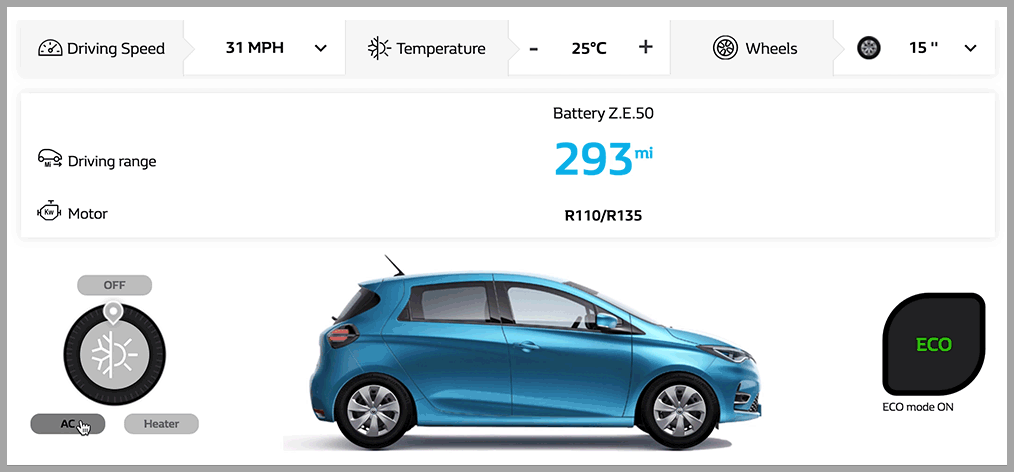With more and more electric vehicles hitting the market throughout the year, EV enquiries on Hippo Leasing are rising too. While we’ve done our best to educate our readership and bust some myths, the general public still have a skewed view around just what EVs can offer and how far they can go.
One of the biggest concerns for people seems to be around electric car range in cold weather, and though battery technology has improved massively over the past decade one thing you can still expect your car to have trouble with is the extreme cold.
While this is the same with any car, with petrol and diesel suffering from reduced fuel economy or unresponsive batteries in sub-zero temperatures, with electric cars the issue is potentially bigger. Let’s find out why:

Why does an electric vehicle range reduce in winter?
If you drive an older model car that’s been around the block a few times you’ll no doubt have experienced the struggle to get your ignition to start on a very cold morning, particularly if it has also been below zero overnight. The reason for this is because cold temperatures impact the battery’s ability to produce the chemical reactions required to ignite the engine.
While the lithium-ion battery found in today’s electric cars is a lot different to the smaller battery typically found under the bonnet of an internal combustion car, the basic principle of cold impeding chemical reactions stays the same. And while Tesla allows features such as Preconditioning and Scheduled Departure to help you get the battery in its optimal state before starting your trip, the cold weather will still impact an EV.
How much will the cold weather impact my electric car range?
Finding out an electric car’s range can be confusing at the best of times, with different battery sizes, wheel sizes, wind resistance and, of course, weather ensuring results vary wildly.
Many manufacturers are upfront about how these various factors can impact the range of an electric car, with model websites often featuring sliders to illustrate how these variables can impact the range:

While the Renault Zoe, featured above, has undergone extreme cold testing and has proven to work normally even at temperatures of -20C, Renault state on their website that on average the Z.E. battery offers a maximum driving range of 195 miles in summer and 125 miles in winter.
Furthermore, very low temperatures can sometimes make charging times longer, affect energy storage and the resulting driving range, or increase energy consumption when heating the interior.
Manufacturers will also offer winter driving tips to limit how much the cold will impact your daily drive. Tesla for example state that you should do the following:
- Keep your Tesla plugged in so the battery stays warm
- Manually pre-heat the car or Defrost using the Tesla app
- Conserve charge via driving at moderate steady speed and use seat heaters for warmth
Should I let winter dictate whether I get an electric car?
While the Renault Zoe potentially loses a third of its charge in winter, the UK doesn’t exactly suffer the extreme cold for a prolonged period. Like the weather throughout the rest of the year it and can be unpredictable and temperamental, so whereas we might experience a cold snap one week it’s liable to be raining the next.
On top of that, electric cars continue to grow in popularity in arctic countries such as Norway with incentives ensuring the country was an early adopter of the tech. Furthermore, with average annual commuting miles recorded as 2,700 miles (around 10 miles per weekday) your electric car range in cold weather, even at its most reduced, will easily last the winter commute.
 Special Offers
Special Offers

 18th October 2021
18th October 2021  4 min read
4 min read 